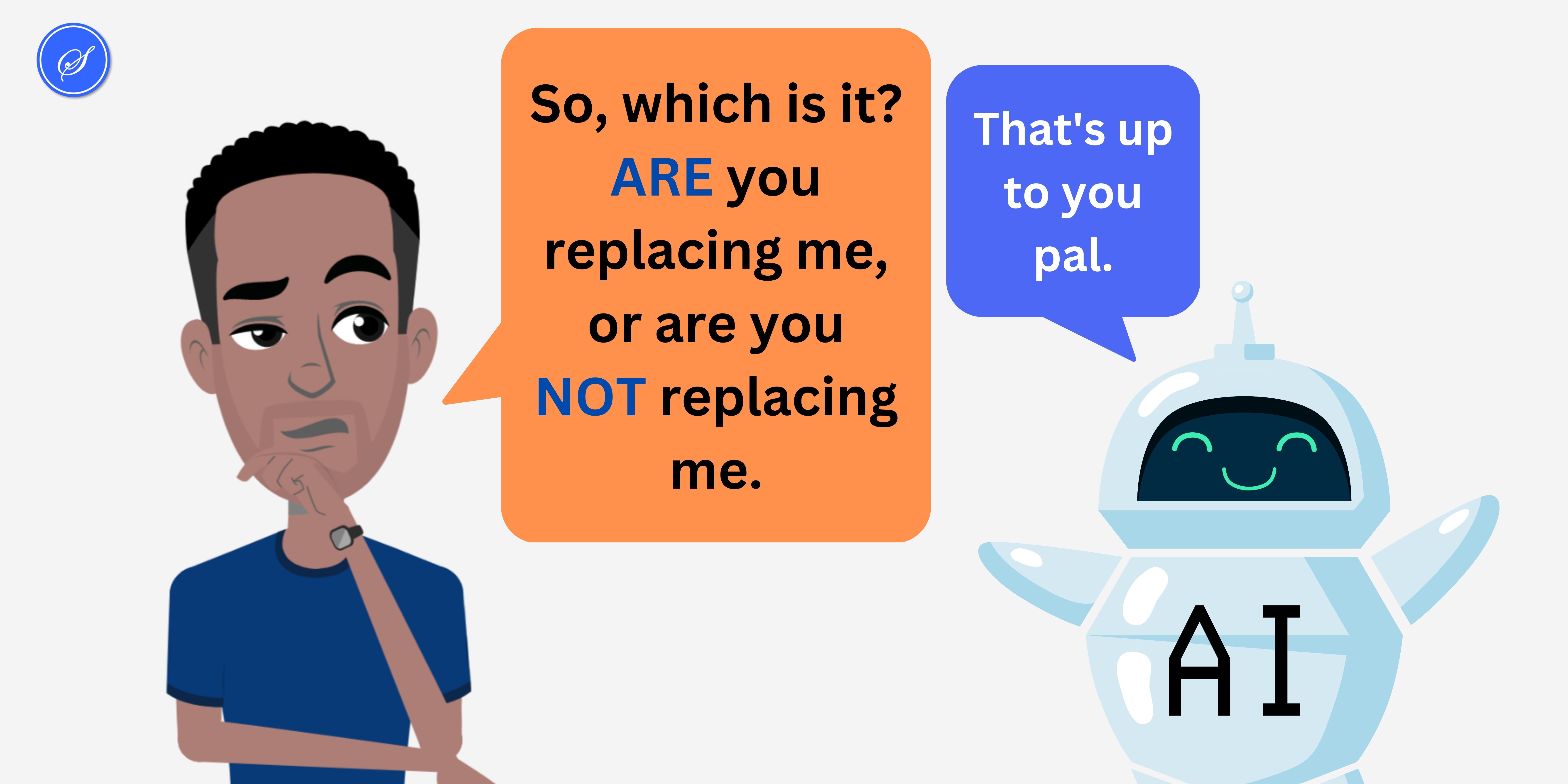Is Coding Still Relevant Today?
Prefer to listen?

Today's tech is marked by fast-paced advancements and transformations, and software development as a field is definitely no exception in these. The thing is though, that these advancements have given rise to questions of whether coding still remains relevant today. Some might argue that traditional coding skills may not be as essential as they once were. However, others would still maintain that coding remains a fundamental skill with numerous benefits in today tech space. To arrive at a more definitive answer to the question, it's crucial to examine both perspectives on the evolving role of coding in society. From the emergence of low-code platforms to the increasing automation facilitated by artificial intelligence (AI), the conversation surrounding the relevance of traditional coding skills has never been more important.
Let's begin our comparisons of opinions then.
Why Some Say Coding Is Losing Its Edge
1. Low-Code Platforms
The advent of low-code platforms has made software development more accessible than ever before. These platforms allow users to create applications using visual interfaces and drag-and-drop functionality, without the need for extensive coding knowledge. As a result, some believe that coding skills are becoming less crucial, as individuals can build functional applications without writing code from scratch.
2. Automation and AI
Automation and AI technologies are transforming various industries, automating repetitive tasks and streamlining processes. With AI-powered tools capable of generating code snippets and automating testing processes, there is less reliance on manual coding in certain contexts. As AI continues to advance, the need for traditional coding skills may diminish further, particularly in tasks that can be automated or streamlined with AI algorithms.
3. The Changing Nature of Work
The nature of work is evolving, with an increasing emphasis on interdisciplinary skills and collaboration across domains. In fields like digital marketing and project management, professionals may prioritize skills such as data analysis and strategic thinking over traditional coding abilities. As organizations embrace cross-functional teams and agile methodologies, individuals with a diverse skill set may be valued more than specialized coders.
Why Coding Still Matters
1. Digital Literacy Foundation
Despite the rise of low-code platforms, coding serves as the foundation of digital literacy. Understanding coding principles empowers individuals to interact with technology more effectively, troubleshoot issues, and customize applications to suit their needs. Whether it's building a personal website or automating tasks with scripts, coding proficiency enhances digital fluency and problem-solving skills.
2. Customization and Control
While low-code platforms offer convenience, they may have limitations in terms of customization and flexibility. Traditional coding skills allow developers to create custom software solutions tailored to specific business needs. With the ability to write code from scratch, developers have greater control over the design and functionality of applications, enabling them to create innovative and unique solutions.
3. Innovation and Creativity
Coding fosters innovation and creativity by empowering individuals to bring their ideas to life through software development. While low-code platforms provide predefined templates, coding allows for greater flexibility and creativity in designing applications. From mobile apps to web platforms, coding provides a canvas for innovation and experimentation, enabling developers to push the boundaries of what's possible in the digital realm.
Trying to Strike a Balance
While coding skills may not be as exclusive as they once were, they remain relevant and valuable in today's digital landscape. Low-code platforms and automation technologies offer alternatives for building applications, but traditional coding skills provide unique benefits in terms of customization, control, and innovation. As technology evolves, individuals must strike a balance between traditional coding expertise and broader digital fluency, adapting to new tools and methodologies while maintaining a solid foundation in coding principles.
In the end, the relevance of coding lies in its ability to empower individuals to understand, create, and shape the digital world around them. Whether it's writing lines of code or leveraging visual development platforms, coding remains a timeless skill that transcends technological trends, enabling individuals to innovate, problem-solve, and contribute to the ever-changing landscape of technology.
Aspiring professionals should recognize the importance of coding as a foundational skill while also embracing interdisciplinary learning and adapting to emerging technologies. By striking a balance between traditional coding expertise and broader digital fluency, individuals can position themselves for success in a rapidly changing technological landscape.
FAQs about The Relevance of Coding Today
Is coding becoming less important with the rise of low-code platforms?
While low-code platforms have made software development more accessible, coding skills remain valuable for customization and flexibility, especially in complex projects.
How does automation and AI affect the need for traditional coding skills?
Automation and AI technologies streamline certain tasks, reducing the need for manual coding. However, coding skills are still essential for tasks requiring customization, optimization, and innovation.
Are coding skills still relevant in fields outside of software development?
Yes, coding skills contribute to digital literacy and problem-solving across various industries, enhancing professionals' ability to interact with technology and adapt to changing digital landscapes.
Can individuals with no coding experience still build functional applications using low-code platforms?
Yes, low-code platforms enable individuals with limited coding knowledge to create applications through intuitive visual interfaces. However, understanding coding principles enhances users' ability to customize and troubleshoot applications effectively.
Comments

Enterprise Software and
Cloud Services for Your Business
Custom Web Applications, SaaS MVPs, Admin Dashboards, API Integrations, DevOps & Deployment, Ongoing Maintenance & Support.
What's in the newsletter?




